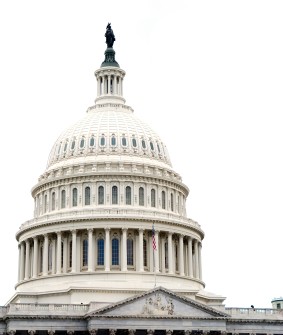 By now, of course, you've heard the news that the U.S. Supreme Court upheld the Affordable Care Act, also known as "Obamacare." Ironically, the Court ruled that the controversial individual mandate is constitutional under the government's power to tax, rather than its power to regulate commerce.
By now, of course, you've heard the news that the U.S. Supreme Court upheld the Affordable Care Act, also known as "Obamacare." Ironically, the Court ruled that the controversial individual mandate is constitutional under the government's power to tax, rather than its power to regulate commerce.
We're not here to debate the merits of the Court's decision. If that's what you want, turn on any cable news network and you'll find various assorted bloviators from both sides, bloviating right now. (Try it. It's fun!)
What we are here to discuss is how the Court's decision affects your tax bill. That's because the original legislation that the Court upheld makes care affordable in part by imposing several new taxes -- in addition to the "tax" or "penalty" imposed by the individual mandate -- that will now go into effect as already scheduled:
- On January 1, 2013, the Medicare tax on earned income, currently set at 2.9%, jumps to 3.8% for individuals earning over $200,000 ($250,000 for joint filers, $125,000 for married individuals filing separately).
- Also on January 1, there's a new "Unearned Income Medicare Contribution" of 3.8% on investment income of those earning more than $200,000 for individuals or joint filers earning more than $250,000. (Doesn't that sound better than "tax"?)
- Beginning January 1, 2014, there's a $2,500 cap on tax-free contributions to flexible spending accounts.
- Also beginning January 1, 2014, employers with more than 50 employees face a penalty of $2,000 per employee for not offering health insurance to full-time employees.
- Finally, the threshold for deducting medical and dental expenses rises from 7.5% of your adjusted gross income to 10%. You probably don't get to deduct your out-of-pocket medical expenses anyway -- but the new, higher threshold will just make it that much harder.
These new taxes raise new planning questions. How can we structure your investment portfolio to avoid the new "Unearned Income Medicare Contribution"? (Doesn't that sound better than "tax"?) What role should flexible spending accounts play in your finances? Should we look at a Health Savings Account or Medical Expense Reimbursement Plan to write off newly-disallowed medical expenses?
And the new healthcare taxes aren't the only challenge we face this Independence Day. We're six months away from what some wags are calling "Taxmageddon." On January 1, the Bush tax cuts are scheduled to expire. And the 2% payroll tax "holiday" expires as well. These mean higher taxes for everyone, not just "the 1%." But with Washington geared up for elections, there's little hope for quick or easy resolution.
Together, these new developments make for some real planning challenges. But when the going gets tough . . . the tough get going. So count on us to get going on today's most pressing planning questions. And remember, we're here for everyone at your July 4th barbecue!
Free, No-Obligation Consultation
I would be honored to chat with you about your accounting, tax and finances whether personal or business. I offer a Free, No-Obligation consultation (at your place or mine). During our meeting we will discuss your concerns and questions and let you know how we can help you and our costs. My consultations are not just sales pitches, I will offer you some solid ideas and solutions to help you right off the bat. To schedule a consultation at a time convenient for you, call me at any of offices or call me toll-free at (888) 758-5966 or click here to email me.
I hope you found this information useful. I am excited by the fact that my practice is growing. The key to my firm’s growth — and probably your business too — is referrals from satisfied clients, customers and friends like you. If you know of a friend, colleague or business that would like to grow with us please let me know.
